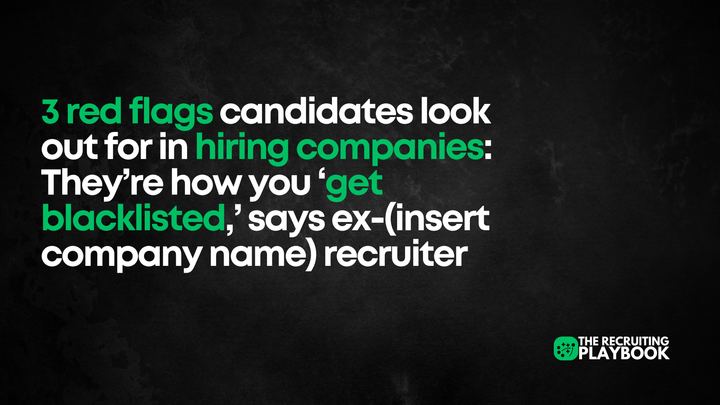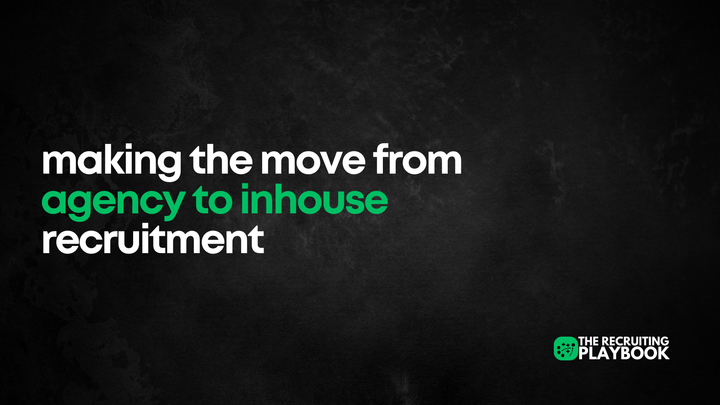Ending The Active Candidate And Passive Candidate Debate

I hate the terms active and passive candidates, I really do.
And I think that’s because most folk don’t sit in either category, honestly I don’t even think the categories exist.
I prefer to think more of it as a spectrum, a line that people can move up and down monthly, weekly even daily.
Let’s say at one end of the spectrum you have people who are searching the job boards every single day, applying to hundreds of jobs, speaking to lots of recruiters and are super active in their job search.
At the other end of the spectrum you have people who very very rarely search the job boards, who bat off every single invite from a recruiter and have zero interest in even entertaining the idea of taking a new job.
Now let’s label each end of this spectrum 1-10, 1 being the first example of that super active candidate and 10 being the one who couldn’t be less interested in looking a new opportunity.
I reckon most people aren’t a 1 or a 10, most people float around somewhere in the middle.
There is also a massive misconception that passive candidates are better than active candidates, that if you’re actively looking for a new role that you mustn’t be very good at your job. Nonsense right?
And it’s not just recruiters who have this view that passive candidates are more capable than active candidates, I’ve sat in board rooms with C-Suite who, when talking about the talent strategy, insist that attracting passive candidates must be one of the primary goals to raise the talent bar.
But we all know really that the world doesn’t really work like that, let me share a story.
I few years ago I was working for a company, I loved it there and honestly I was exceptional at my job, I truly believe that. On the active to passive spectrum I was probably about an eight or a nine, I wasn’t actively looking but if somebody put a good opportunity in front of me I’d have considered it if it was better than what I already had.
After a couple of years in that role, I was getting a little bit bored, I wasn’t being stretched enough and was itching for something new to sink my teeth into, at that point I was about maybe a 5 or 6 on the spectrum. I’d search the job boards daily, I wouldn’t apply for lots of jobs but if I saw something that looked like a challenge and seemed better than what I had right now then I’d throw my hat in. I was still exceptional at my job.
A short time after that, there was a leadership change within the company and the culture changed overnight, it had gone from a culture of trust and innovation to one of micromanagement. I hated it and wanted to get out as soon as possible, I was probably a three or four on that spectrum.
My criteria of “better” had also changed, I was considering jobs that had a longer commute or even less salary, because I wanted to change my situation. It’s important to note that I was still exceptional at my job.
Over about a three year period I’d moved from a nine to a six and then very quickly to three on the active passive spectrum. My capability hadn’t dropped to a three though, it was still up there I was better in year three than I was in year one of that job.
And I guess that’s my point, somebody’s level of activeness and passiveness has zero relevancy to their capability. Where you are on that spectrum can change over night due to circumstances outside of your control, capability is completely irrelevant when it comes to how active you are or are not in the job market.
But it’s not all just about capability, some people would argue that if you manage to engage with a super passive candidate, who is maybe an eight or a nine on the spectrum then you’ve got a better chance of landing them because they’re not interviewing elsewhere.
I’m sorry but that’s nonsense, and here’s why.
As a recruiter you get in touch with one of these super passive candidates and what you can offer them is better than what they have today.
What happens next is they start thinking about why it’s better, then they start thinking about aspects of their current role that they don’t like too much, to almost justify why they should explore this opportunity. Then they’ll usually start thinking that maybe there’s more opportunities out there that could also be better than what they have right now.
So sure they’ll engage with the recruiter that reached out but then they’ll also start looking at other opportunities too, they’ll have moved from an eight or nine to maybe a six or seven.
It won’t happen every time, but it will happen more often than it doesn’t. I have no data or research to back this up but my almost two decades of experience in hiring gives me enough confidence to make that statement.
How about we stop talking about the active and passive candidates, people aren’t one or the other. Their levels of activeness can change literally overnight.
I’ve interviewed people who are brilliant at what they do and are probably a one on the spectrum in terms of their activeness in the market. I’ve also interviewed people who where about an eight or a nine who looked great on paper but where woeful.
Levels of activeness has no relevancy to capability.
There is literally no debate to be had.
Subscribe
Subscribing to this site gives you access to premium articles, subscription to my newsletter and a free copy of My Ultimate Guide To Job Searching.
Follow Me
Find me on LinkedIn , TikTok , YouTube or Instagram where I share lot’s of practical no nonsense advice.
Get Your Copy Of My Ultimate Guide to Job Searching
Searching for a new job can be tough, the right mindset and strategy can help. Download my “Ultimate Guide To Job Searching” ebook to help which also includes 180+ interview questions, interview tips and email templates.
Get your copy here The Ultimate Guide To Job Searching
Or get it for free by subscribing to this site.
Support This Site
With rising subscriber numbers (you're all awesome, thank you!) the costs of hosting this site and sending newsletters is rising. If you can support this site with a voluntary donation, I'd really appreciate it
You can donate here



